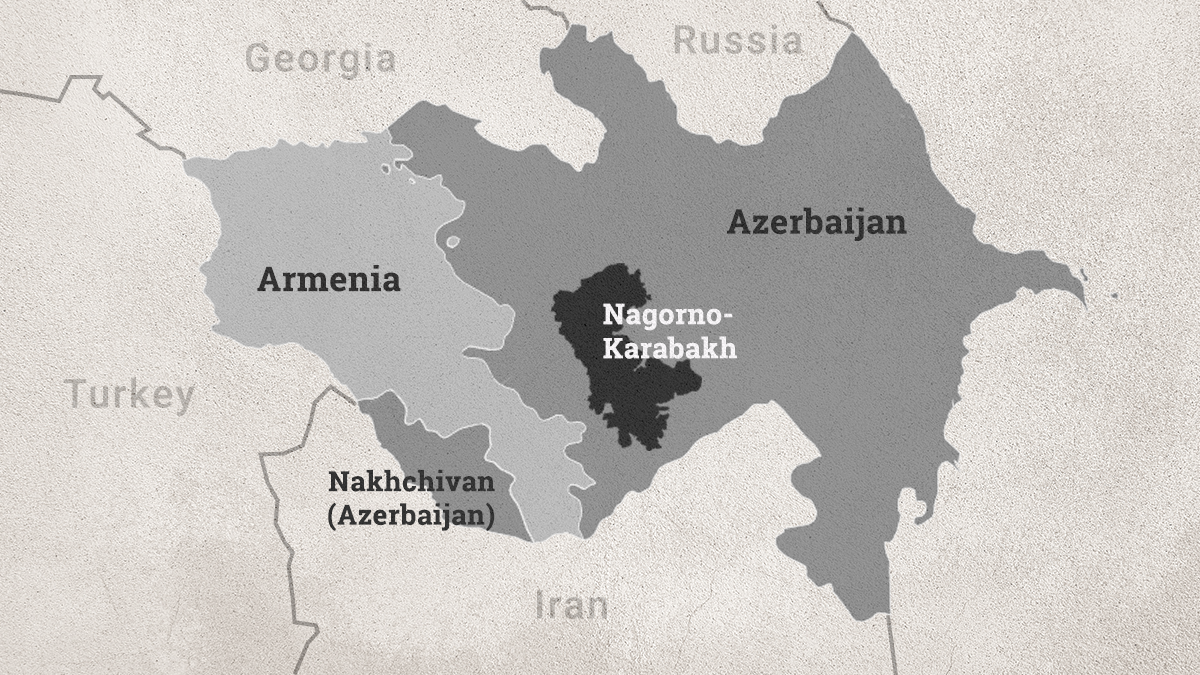OK, you may only recently have learned what “Nagorno-Karabakh” is (and if you didn’t, you can go here.) But when it rains it pours, especially in the Caucasus. So now it’s time to learn about a small exclave that could trigger the region’s next big conflict. Today, we are meeting “Nakhchivan.”
What’s Nakhchivan? Home to about half a million Azerbaijanis, Nakhchivan (pronounced NOCK-chee-vonn) is a part of Azerbaijan that is separated from the rest of the country by a thin sliver of Southern Armenia (see map above). Until 1991, those borders didn’t mean much, as both Armenia and Azerbaijan were glommed together as part of the larger Soviet Union.
But when the USSR collapsed and Armenia and Azerbaijan went to war over Nagorno-Karabakh in the early 1990s, Armenia cut Azerbaijan’s overland ties to Nakhchivan. That forced Azerbaijan to create new routes through neighboring Iran, and to rely more on Turkey, which has a small border with Nakhchivan as well.
Now, Azerbaijan has Nakhchivan in its sights again, perhaps literally. The reconquest of Nagorno-Karabakh means Azeri forces now control all of Azerbaijan’s territory again, right up to the Armenian border region of Syunik, which is all that separates Azerbaijan from the Nakhchivan exclave. It is a distance of barely 20 miles as the Azeri “qarğa” flies.
An emboldened Azerbaijan is now renewing longstanding calls to create an Azeri-controlled “corridor” that would slash across southern Armenia. Turkey — which has always strongly supported its ethnolinguistic cousins, the Azeris — also likes the idea. After all, linking Azerbaijan, Nakhchivan, and Turkey would create a pan-Turkic entity spanning from the Caspian Sea to the Mediterranean. Just days after retaking Nagorno-Karabakh, Azerbaijan’s President Ilham Aliyev met his Turkish counterpart Recep Erdogan in Nakhchivan to push for a new corridor.
The Armenians, not surprisingly, don’t like this at all. But if Azerbaijan moved to create facts on the ground, would anyone come to Armenia’s defense? The outcome of the Nagorno-Karabakh war leaves little reason to think so. Azerbaijan, with Turkish help, is now in a commanding position to dictate what the map of the South Caucasus looks like.
Now that you know what Nakhchivan is … keep an ear out for more news on it in the coming weeks.